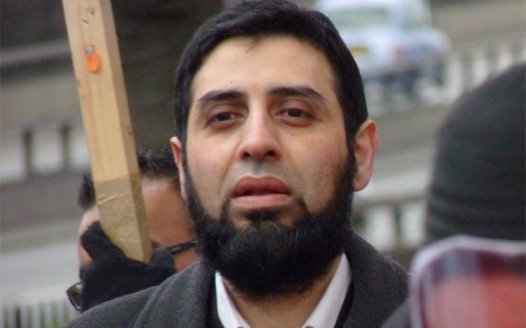The booming industry of religious chaplaincy
Posted: Fri, 30th Mar 2012 by Stephen Evans
Despite the parlous state of the UK economy, it appears chaplaincy is a boom industry. An ever increasing army of priests, pastors, rabbis, imams and laypeople are attaching themselves to secular institutions, largely funded by the taxpayer, to take the word of god out of places of worship and into our shared spaces.
In a nation as secularised as ours, the significant amount of public money being poured into what should be purely pastoral services but which are based specifically around people's religious beliefs is an anachronistic religious privilege that needs addressing fast.
Chaplains like to claim their services are used by everyone, regardless of religious persuasion. Even if that were true, the fact remains that religious-based pastoral support is not appropriate for a large proportion of our diverse population who rightly expect and deserve the state to fund public services that are secular and equally welcoming to all at the point of use.
This week the BBC launched its new six part series about chaplains. Predictably, episode one was an unashamedly biased puff piece which followed the work of two chaplains in Liverpool – one at Alder Hey Children's Hospital and another at the University of Liverpool.
The show described chaplains as an "increasingly vital" link between the church and people's everyday lives. Vital to the Church perhaps, ever mindful of their dwindling congregations , but surely not to most of the rest of us?
While the university chaplain was failing hopelessly at a freshers' fair to bribe students to come to church with bacon butties, the hospital chaplain was arranging for a local priest to perform the Sacrament of Anointing the Sick for a Catholic family whose baby was due to undergo serious open heart surgery.
Few people would question the value of the service carried out by hospital chaplains to those who use it, but surely finite NHS budgets should be spent on healthcare rather than spiritual care?
The National Secular Society isn't advocating the complete removal of religion from our hospitals, but we do suggest that the financial burden of this work should be picked up by the relevant faith groups, perhaps through the establishment of charitable trusts, similar to those that fund the Air Ambulance (only in Scotland is Air Ambulance government-funded).
Figures obtained by the National Secular Society under Freedom of Information legislation have revealed that £29m of healthcare money was used to pay for hospital chaplains in 2009/10. The Secular Medical Forum calculates that each full-time hospital chaplain removed from a Trust budget would finance at least two nurses. This figure is for staff salaries only and does not include the provision and maintenance of chapels, churches, and prayer rooms.
A recent study by the University of Liverpool has found a fast increasing number of what they describe as "shared spaces for prayer reflection and meditation", despite the declining popularity of established religion. The study observed a mushrooming of 'multi-faith' facilities in the UK over the past 10 years.
When organisations and public services consider it cost-effective and necessary, there may well be a case for providing properly trained pastoral support. Where this is the case, they should do so equally to everyone. It is necessary therefore to challenge the exclusive and discriminatory religious monopoly in this area.
In our prisons, it is the Church of England that enjoys the monopoly. Prison chaplains can be of different religions and denominations, but the 1952 Prison Act requires every jail to have an Anglican chaplain. In a parliamentary question this week, National Secular Society honorary associate Lord Avebury asked the Government whether, in the light of changes in the prison population, they will hold a consultation about updating the Prison Act 1952 to reflect modern ideas on the prison chaplaincy. The Justice Minister, Lord McNally, said they had no such plans.
However, in a possible break from tradition, the Ministry of Justice has confirmed it is "considering arrangements" for appointing a new Chaplain-General - but for the first time, the job might not go to an Anglican. In addition to the Anglican chaplain in each of the 144 prisons in England and Wales, there are about 100 other Christian chaplains, and some 200 full-time and part-time imams. Whatever decision the Government reaches, prison chaplaincy will become increasing multi-faith, but where will largest group of inmates – those with no religion – turn to for pastoral support?
The established church is also deeply embedded in our armed forces. The Ministry of Defence spends £22 million a year on 280 exclusively Christian chaplains – all commissioned officers with a starting salary of £37,172 on appointment, rising to £55,857 after 15 years' service. Senior chaplains receive more.
Our publicly funded schools are the new frontier for religious chaplains. We are already seeing the new crop of academy schools beginning to advertise for them. In Australia, the controversial Schools Chaplaincy Program funds religious chaplains in around 2600 schools. In correspondence seen by the NSS, the educational arm of the Church of England say they are "quite interested in the Australian model, particularly where the funding is from the state."
With public spending being squeezed like never before, it's time to seriously question the appropriateness of millions of pounds being spent on religious chaplaincy services. Where pastoral care is provided, no citizen should be privileged or marginalised depending on whatever god they choose, or choose not to believe in.
Religious dogma shouldn't interfere with your healthcare
We campaign to protect patients from the harm caused by the imposition on them of other people's religious values, and advocate for a secular approach to current healthcare issues. Please consider a donation, from as little as £1 a month, to help support our work in this area.
P.S. make sure to check out the related campaigns below.







